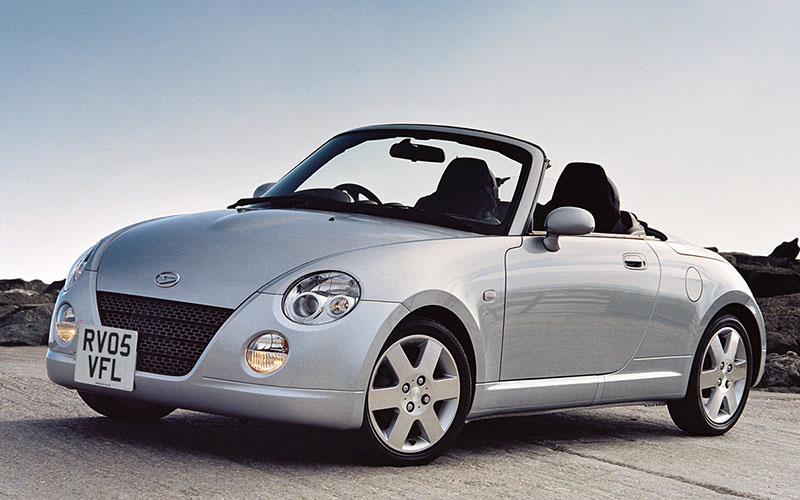States Crack Down on Kei Cars, ECUs, and Squatted Trucks
Across the country, state regulators are taking a dim view of imports, custom ECU tuning, and suspension modifications.
States’ Rights, to Regulate
The National Highway Traffic Safety Administration does a lot of the heavy lifting when it comes to federal regulations regarding road-going vehicles. Above and beyond the rules set down in law by Congress and those from the NHTSA, states are free to design and implement their own regulations. California is perhaps the most well-known case of a state imposing most stringent rules than current federal ones. In the case of the Golden State, many of those additional rules involve vehicle emissions. But California isn’t the only state to draw up new rules recently, nor are those rules limited to what comes out of a tailpipe.
New England’s War on Kei Cars

Like may of you, we love those compact Japanese kei cars. It turns out, state regulators in Rhode Island and Maine don’t share our enthusiasm and have been canceling the registrations of otherwise legally imported and registered kei cars, mini-trucks, and micro-vans. The implications of this push could have far-reaching legal implications not just for kei cars but for all foreign imports.
In Rhodes Island, the state DMV has been sending out letters to car owners warning them they may be in violation of the state’s motor vehicle laws relating to the registration of “low-speed vehicles.” In some cases, applications for registration are being held up or denied, in others, the current registration of vehicles is being revoked.
To understand this move, it’s necessary to know the federal regulation that applies to imported vehicles. In an effort to protect domestic manufacturers, federal law stipulates a 25-year waiting period prior to the importation of a vehicle (down to the exact VIN date of production). This means only vehicles produced prior to October 1996 can be imported to the US. Vehicles imported under these rules are exempted from federal safety and emissions regulations.

But it appears that the Rhode Island DMV is applying those Federal Motor Vehicle Safety Standards (FMVSS) to imported kei cars and mini-trucks. Allegedly, the state DMV is citing the American Association of Motor Vehicle Administrators’ recommendations that deem kei cars and mini-trucks as unsafe for public roads, which, it should be noted are a set of suggested best practices for regulators and happen to conflict with current Rhode Island and federal law. Though there is reportedly a “stay” on the this Rhode Island DMV policy, Rhode Islanders report conflicting enforcement with some allowed to continue to drive their vehicles while others have been unable to get their plates back from the DMV.
While the Rhode Island DMV appears to lack a defensible legal basis for unregistering legally imported and registered vehicles, there will inevitably be legal proceedings to straighten things out. Meanwhile, there are a lot of Rhode Island kei car owners left in the lurch.
What’s Maine’s Beef with the Delica?

Rhode Island isn’t the only New England state hating on Japanese imports. For unknow reasons, the Maine Bureau of Motor Vehicles has seen fit to redefine Mitsubishi Delica vans, by no means a kei-sized micro-van, as a mini-truck and therefore legally defined as an off-road vehicle unfit for public roads. Maine is now requiring imported vehicles to carry an EPA compliance sticker, which, as an import, is an impossibility. Without such a sticker, the Maine BMV is deeming such vehicles, starting apparently with the Delica, as off-roaders.
It’s unclear what’s prompted these changes, but they could have broad impacts once courts begin to rule on their legality. The slippery and indistinct (or blatantly inaccurate) definitions used by the Maine BMV could obviate the federal carve out for 25-year-old imports, with owners who followed state and federal importation rules only to find they’ve got a vehicle they can’t register or drive.
California Doesn’t Like that Tune

Meanwhile, this summer saw changes to California’s biennial emissions checks. Starting in July, California car owners with ECU tunes will automatically fail the inspection unless that tune is an off-the-shelf tune approved by the California Air Resources Board (CARB). This means previously approved vehicles that otherwise pass emissions testing have a new hurdle to clear if they’ve tinkered with their ECU. The “good” news is California regulators say owners can revert their computers back to OEM settings for the test and then retune them afterward. So as long as the car can pass the emission test with a stock or approved tune, it’s no harm no foul. Except his seems to be a major inconvenience for car owners and quite nearly obviating the new rule all together.
North Carolina Bans Squatting

Just last month, North Carolina law makers banned what had become known as the “Carolina Squat,” the practice of lifting just the front suspension of trucks and SUVs, often to absurd angles.
According to House Bill 692, starting Dec. 1st, any vehicle with a front suspension lifted four or more inches difference from the rear suspension, said vehicle will be considered “squatted.” Though we tend to err on the side of new and emerging trends in car culture, state law makers may have a point on this one. Squatting a truck, as they cite, can obscure the driver’s view of the road, inhibit engine lubrication, and hamper maneuverability.
Under the new law, penalty for a squatted vehicle is “mandatory revocation of license” for a minimum of one year. According to the Raleigh CBS affiliate, there were over 70,000 signatures to an online petition calling for the ban.










